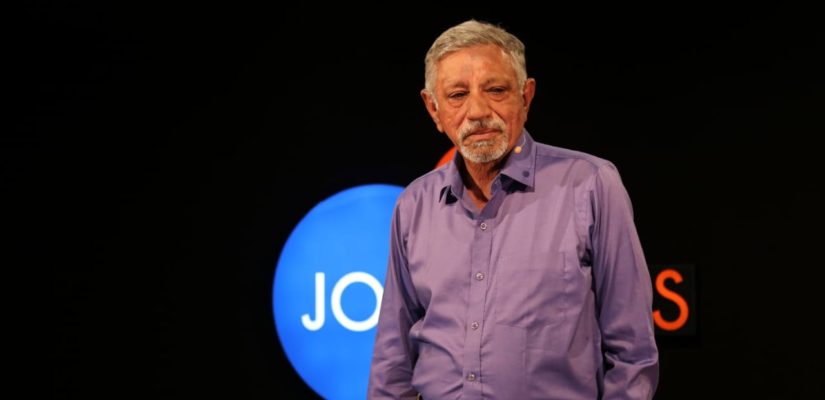
Appointment of CDS (English version) Rakshak News 21 Aug 19
http://www.rakshaknews.com/vishesh/announcement-of-appointment-of-cds-creates-new-possibilities
Appointment of CDS (English version) Rakshak News 21 Aug 19
The Prime Minister announced from the ramparts of the Red Fort on Independence Day, that as part of military reforms the government would appointment a Chief of Defence staff (CDS). Multiple views flowed, most with high expectations. Many are likely to be disappointed as on multiple occasions, announcements have been at variance with implementation.
The appointment of a CDS has been the demand from all strategic think tanks and few of the services. However, the nature of the appointment and its authority have been differing. Its importance can be gauged from the fact that maximum developed nations have adopted this model. It has been recommended by every committee formed by the government to restructure apex management of national security.
The most noted committee to recommend appointment of a CDS was the Subramanyam committee post the Kargil war. Its recommendations included reorganizing the Ministry of Defence (MoD), creation of HQ Integrated Defence Staff (IDS) and appointing a CDS. Of these only HQ IDS was created, others ignored. Ideally, HQ IDS should have been a part of the MoD and so amalgamated that there is a cohesion in thought process between the government and service HQs and views of service HQs rightly conveyed.
Subsequently, the government appointed the Naresh Chandra Task Force. This recommended that the CDS be converted into a Permanent Chairman Chiefs of Staff Committee (PCCOSC). This implied that the CDS would not be a five-star but a four-star general, equivalent to existing chiefs, albeit first amongst equals. It also debunked the concept of joint commands.
There are various models across the globe, from the ideal to the worthless. In western democracies, the CDS heads the three services. In the US, the concept is of theatre commands and the Chiefs of Staff committee. In their case, the commanders of theatre commands directly report to the Defence Secretary, while the Chairman Chiefs of Staff Committee remains in the chain. The worst case is of Pakistan, where the CDS is only an appointment to fill a vacuum and supposed to be responsible for nuclear forces, however, operates under the army chief.
In case of India, governments have avoided even considering the appointment of a CDS, fearing complete military power flowing into a single hand. This fear has been compounded by examples in the neighbourhood, where the military has taken over reins of the nation on multiple occasions. The Manmohan Singh government spent its full tenure only seeking political consensus on appointing a CDS.
This fear of a coup has been exploited by the bureaucracy, fearing that appointing a CDS would result in a five-star general, which could offset the delicate protocol chain by making him senior to the cabinet secretary. The three services, aware of the fear within the government, had even proposed a PCCOSC as a mid-path.
In their proposal the PCCOSC would head HQ IDS and be responsible for joint planning, procurement plans and represent service chiefs in multiple committees. He would not command the three services but have under him the existing joint commands including the Andaman and Nicobar, Strategic Forces, space, cyber and special forces commands. He would be the single point military advisor to the government.
More important than appointing a CDS is the amalgamation of service HQs and the MoD. The present system has the bureaucracy, with no clue of matters military, responsible for all aspects of the armed forces and national security. This has led to increased problems, rather than working in tandem. Amalgamating IDS with MoD would nix the issue.
While a CDS with all three services under him is the need of the hour, the reality which may emerge may be different. As per reports, the government has approached service HQs to forward their views on the appointment of a CDS and the powers which he must possess.
In case the CDS commands all forces, then the next logical step would be the creation of joint commands. With this step, service chief’s role would shift from force employers to force providers. The air force at present is against the concept of creation of joint commands and would never agree.
Nowhere in the world has the creation of the CDS been done with the approval of service chiefs. It has always been an act by the government pushed through political will. Hence, in all probability the views given by service HQs would be to create a CDS on the lines of the PCCOSC, implying a staff appointment, rather than a commander of forces. This would also be in line with the thinking of the government, which would prevent transferring all power into a single appointment and not upset the applecart of protocol with the bureaucracy.
The announcement by the Prime Minister was a signal that reforms are on the way. Its manner of transformation remains a mute question. On multiple occasions announcements by the PM and subsequent implementation have been at variance, OROP is a prime example. Expecting a full-fledged CDS as a five-star general is expecting the moon and most unlikely in India due to bureaucratic and political fears. PCCOSC may be more likely but would be termed as the CDS.
However, more important should be amalgamation of the MoD and service HQs. This will change Indian security management for eternity.
You’re a tad unfair to the AF: the primary reason for them probably not agreeing to Theatre Commands (which IS a corollary to a genuine 5 star CDS) would be stretching already thin air power force levels …very valid reason, Harsha! We’re NOT the US of A, with relatively massive air resources, no?!